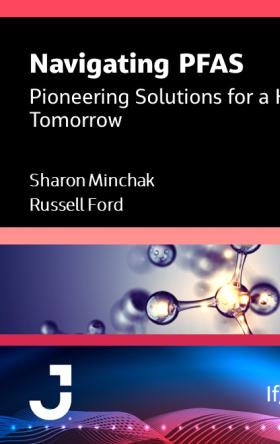On November 30, 2023, the U.S. Environmental Protection Agency (EPA) published the long-awaited proposed Lead and Copper Rule Improvements (LCRI) with the intent to finalize the new rule prior to October 16, 2024. Similar to the existing Lead and Copper Rule Revisions (LCRR), the LCRI will have an effective date and compliance deadline. This means that the proposed requirements within the LCRI will likely be effective in the fall of 2024 with a compliance deadline in the fall of 2027. It is also important to note this is a proposed rule subject to change before the final publication.
The LCRI is intended to strengthen the LCRR and clarify specific requirements. The overall goal is to continue protecting public health with a larger focus on locating and removing sources of lead such as connectors and lead service lines. The EPA recognizes there is no safe level of lead in drinking water and has developed the proposed LCRI to protect children and adults from the adverse health effects. Per the EPA, the high-level provisions include:
- Achieving 100% lead pipe replacement within 10 years.
- Locating legacy lead pipes.
- Improving tap sampling.
- Lowering the lead action level.
- Strengthening protections to reduce lead exposure.
With the ever-evolving regulatory landscape, it can be unclear what is or isn’t due by the LCRR compliance deadline of October 16, 2024. The proposed LCRI does not impact the compliance deadline for the initial service line inventory and submittal to your state regulator or primacy agency will be required by October 16, 2024. Updated compliance deadlines for the other key elements of the LCRI including the lead service line replacement plan, modified tap compliance monitoring and monitoring for lead at schools and childcare facilities will be available when the LCRI is finalized by fall of 2024.
Infrastructure Investment and Jobs Act (IIJA) / Bipartisan Infrastructure Law (BIL) funding is available for inventories and service line replacements, and it is strongly advised to complete inventories and start replacements as soon as possible. The BIL provides a total of $15 billion in dedicated funding for activities associated with the identification, planning, design and replacement of lead service lines. In addition to this dedicated funding, the Law provides an additional $11.7 billion in general funding through the Drinking Water State Revolving Fund, which can also be utilized for lead removal projects.
“The Lead and Copper Rule Improvements advance the EPA’s commitment to eliminate lead exposure from drinking water and protect public health, especially among vulnerable and disadvantaged populations,” explains Jacobs Vice President & Global Director - Drinking Water & Reuse Solutions Russell Ford. “Jacobs has already spent several decades supporting communities in the U.S. with Lead and Copper Rule-related compliance strategies, and we’ll continue to provide that programmatic support as our clients navigate the new LCRI requirements, including replacing all lead service lines within 10 years.”
For more than 30 years, Jacobs has been responsible for planning and implementing Lead and Copper Rule-related strategies which protect millions of people in the U.S. and Canada. This includes helping Salt Lake City Department of Public Utilities to incorporate environmental justice considerations into lead service line replacements and developing a LCRR compliance strategy for the City of Wilmington, Delaware. Please reach out to our team of specialists if you have any questions. We’re committed to helping you with the next steps towards regulatory compliance and protecting public health from exposure to lead in drinking water.
About the authors

Lauren Wasserstrom is the National Practice Leader for Lead and Copper Rule Compliance with over 11 years of experience in the water industry, focusing on drinking water quality, treatment and distribution/premise plumbing system challenges, including corrosion control, regulatory compliance, treatment process selection and optimization, and water quality monitoring.

Tugba Akgun is the Northeast Practice Leader for Lead and Copper Rule Compliance with 10 years of demonstrated experience in developing and managing capital planning and special projects for wastewater systems and water systems for a diverse client portfolio. She is responsible for the development of comprehensive lead and copper rule compliance programs in the Northeast region.

Jennifer Liggett is Global Principal for Drinking Water Quality based in Denver, Colorado. Jennifer has over 15 years of research and consulting experience with distribution system water quality topics such as regulatory compliance, corrosion control studies, and nitrification and legionella prevention plans. She is a SME in LCRR.

Dr. Russell Ford’s career has concentrated on improving drinking water quality and providing a positive impact on public health around the globe. As our Global Drinking Water & Reuse Solutions Director, Russell leads our drinking water business from both a technical and leadership perspective, able to bring the best resources to deliver critical client solutions.

















































